ICFPD Strategic Plan for Coronavirus Management May 2020
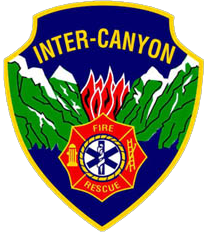
Approved by ICFPD Board of Directors June 10, 2020
Executive Summary
ICFPD First Responders (firefighters, EMTs and paramedics) have a critical role in structural firefighting, wildland firefighting and prehospital emergency care and must continue to provide these essential services. During the coronavirus pandemic, workloads have increased, and staff sizes may diminish as employees and their families become ill or are quarantined. Contingency planning for three time periods can mitigate the worst impact.
To help with planning for the impacts of the ongoing coronavirus pandemic, the ICFPD Strategic Plan for Coronavirus provides the following information for first responders:
- Potential ways to adjust operations to maintain readiness and response.
- Identification of three timeframes which may impact ICFPD operational readiness and staffing.
- Present out-of-the-box planning and operations concepts to drive thought and discussion.
- Potential budgetary impacts of ongoing coronavirus pandemic.
Protecting the ICFPD First Responder Workforce and Their Families
Protecting the ICFPD First Responder workforces (both volunteer and career) and their families contributes to the safety and security of our community during the coronavirus pandemic. In March of 2020 ICFPD implemented several methods to protect the staff and community.
Layered defense
A common infectious disease security concept is that of layered defense or layered protection. The goal is to create multiple layers of protective measures against exposure to the virus for the ICFPD First Responder. The more layers of protection, the better protected our staff will be. For first responders, the goal is to protect the emergency service capability of ICFPD. The responders, in turn, protect their families, their workplaces and the community at large. Better-protected first responders are thereby better able to protect the ICFPD community with fire suppression and EMS.
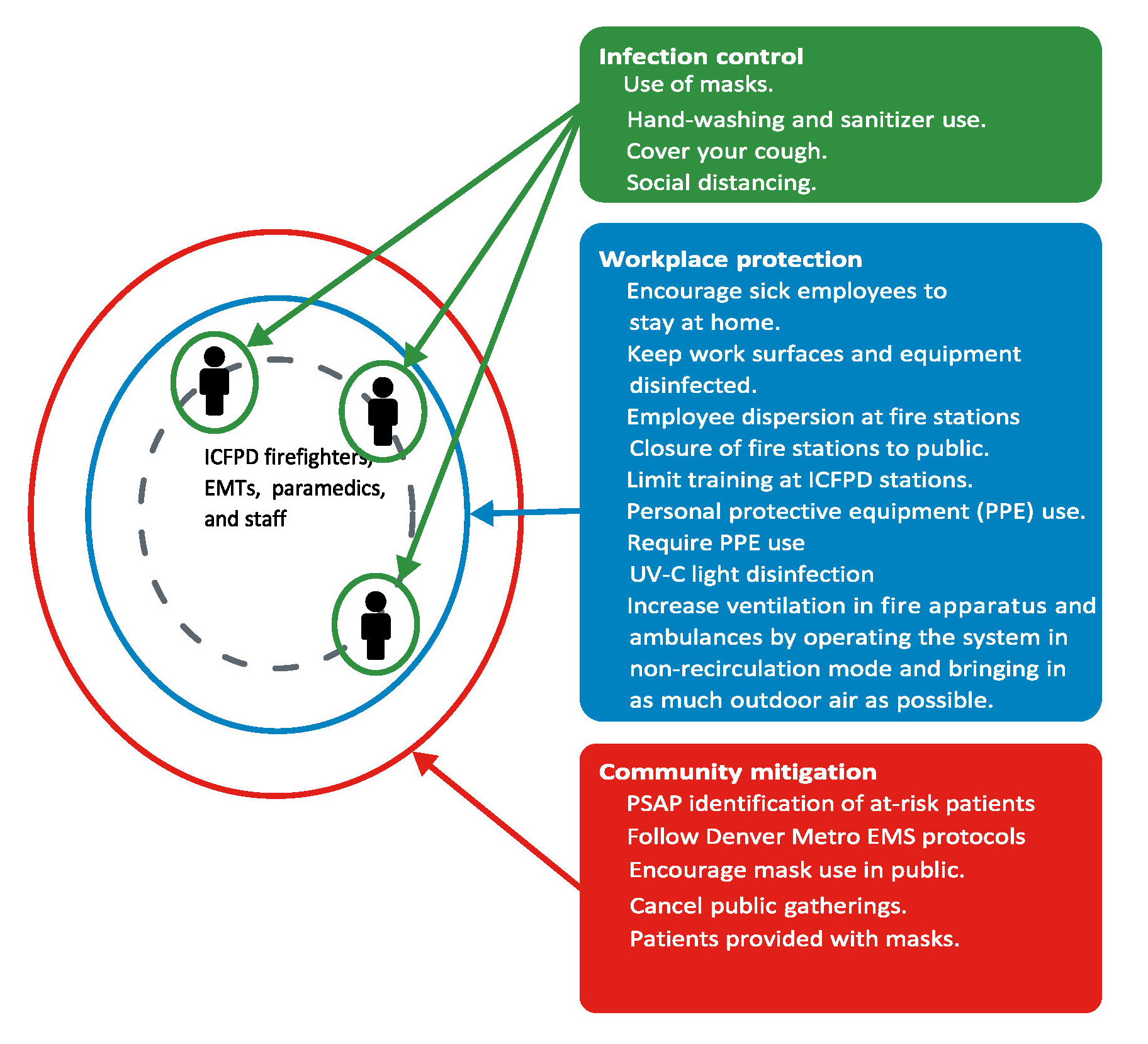
Leadership actions during a pandemic
Employee risks of occupational exposure to viruses during a pandemic vary widely, depending upon role and level of interactions with patients and the public. The level of risk depends in part on the ongoing severity of the virus, whether jobs require proximity to people actually or potentially infected with the pandemic virus, or whether the employees are required to have either repeated or extended contact with known or suspected virus sources such as fellow volunteers, co-workers, the general public, patients, and school children.
Staffing
During the coronavirus pandemic, a major challenge in the next three timeframes identified in this plan could be the reduction in the workforce due to absenteeism. It is important to identify and plan for alternate or nontraditional resources for use during a pandemic before there are severe impacts to the operational response capability of ICFPD. Potential impacts include:
- Staffing and volunteer response return to normal levels with no significant increase in call
- Reduced volunteer response reducing the number of first responders at each
- Reduced career officer/paramedic response due to illness or
Workforce protection
When a vaccine is available, strongly encourage staff and family vaccinations. Colorado EMS regulations do allow EMS staff to provide vaccinations. Provide incentives to employees to get vaccinated.
ICFPD provides telecommuting tools for appropriate employees and leadership. ICFPD limits workplace visits by nonessential personnel.
ICFPD has implemented social distancing precautions.
ICFPD has implemented PPE and administrative controls to limit potential exposure to the coronavirus.
ICFPD promotes emotional support resources and engaging peer support. Sustainability
ICFPD has adequate supplies of PPE for approximately 6 months at the current run rate of emergency responses. EMS supplies are on hand for approximately 2 months at the current run rate of EMS responses.
Resource sharing
ICFPD has shared resources such as PPE with surrounding agencies and has confirmed mutual-aid agreements. ICFPD has offered assistance with staff communication and coronavirus information.
Public communication and education
ICFPD has coordinated with Jefferson County Public Health, Jefferson County Sheriff’s Office and the State of Colorado Joint Information Center on messaging.
ICFPD has focused our social media on the difference between emergency and nonemergency care in order to reduce reliance on emergency services, changes in response capabilities (Denver Metro EMS Protocols), and methods to improve health and safety of first responders and our patients.
Continuity of operations during the coronavirus pandemic
A pandemic threatens to disrupt the essential services and operations within and across our nation. Whenever national disease containment strategies fail, first responders are on the frontlines in the public health battle.
While the severity of the ongoing disease outbreak may vary throughout the three timeframes addressed in this strategic plan, the potentially catastrophic impact of a pandemic demands that organizations engage in contingency planning and preparedness efforts. Pandemic planning recommends that ICFPD refines their definition of “essential” if they are to continue providing critical and services.
Potential impacts of a pandemic
This pandemic presents significant challenges to ICFPD and the community we serve. Typical approaches to obtaining or providing mutual-aid assistance across jurisdictions will be hindered by a potential increase in absenteeism (reduced volunteer response) of the ICFPD firefighters, EMTs and paramedics as well as that of neighboring agencies.
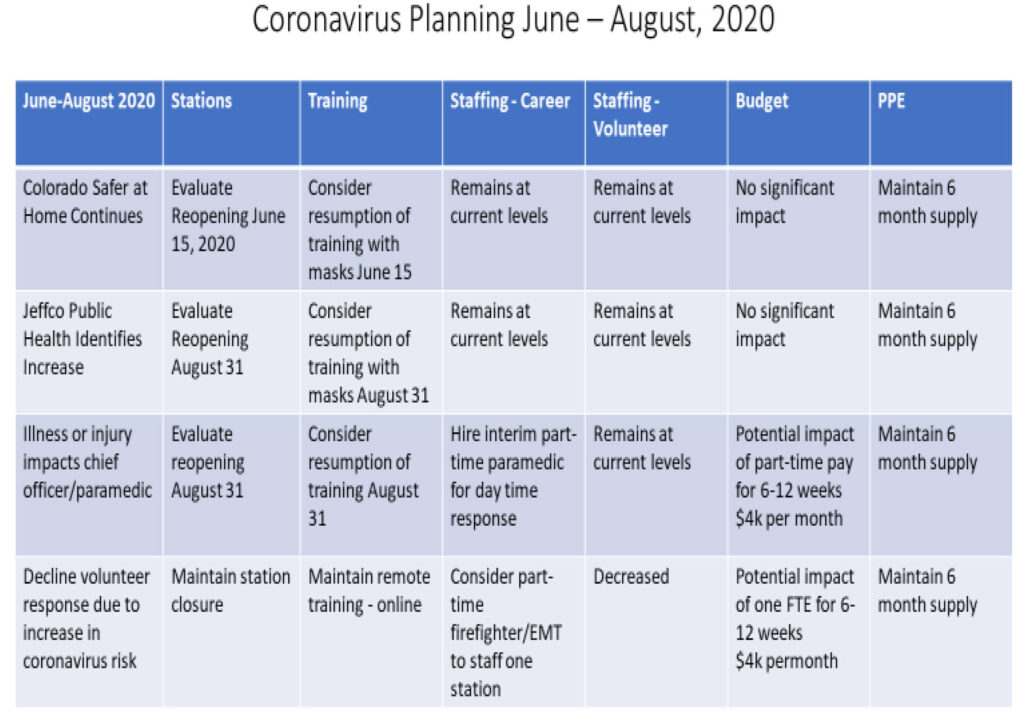
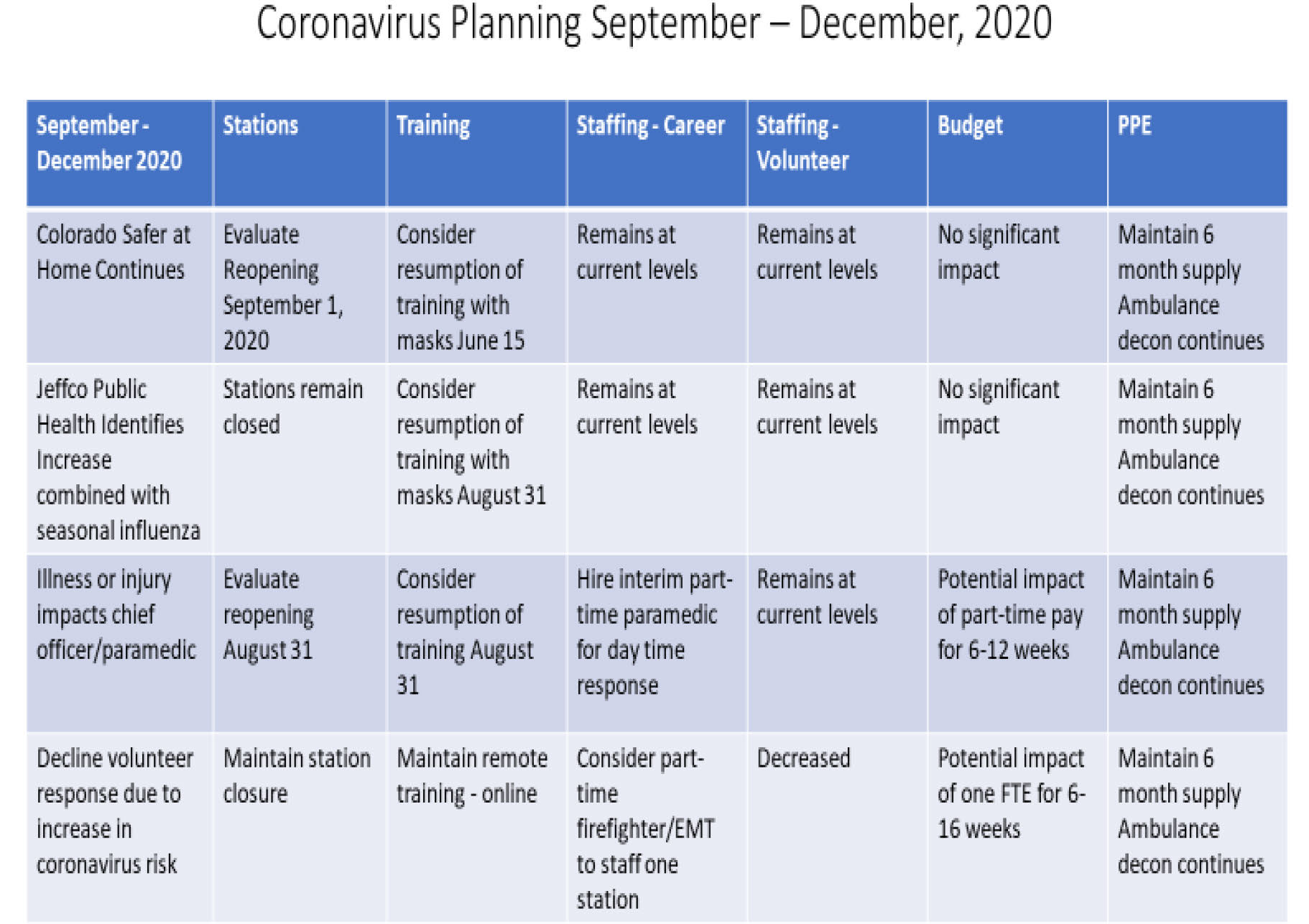
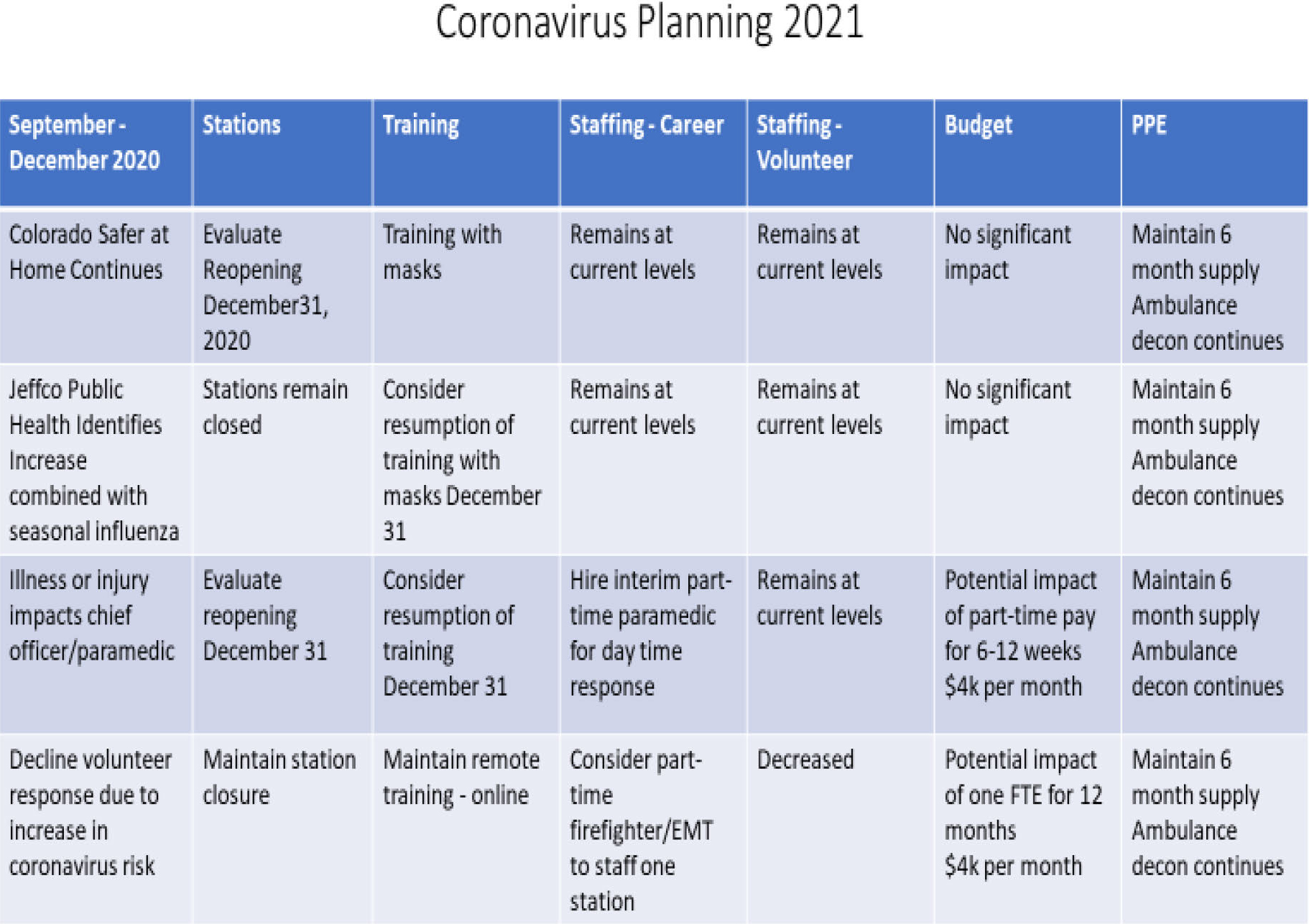
Download ICFPD Strategic Plan for Coronavirus Management May 2020 as pdf.